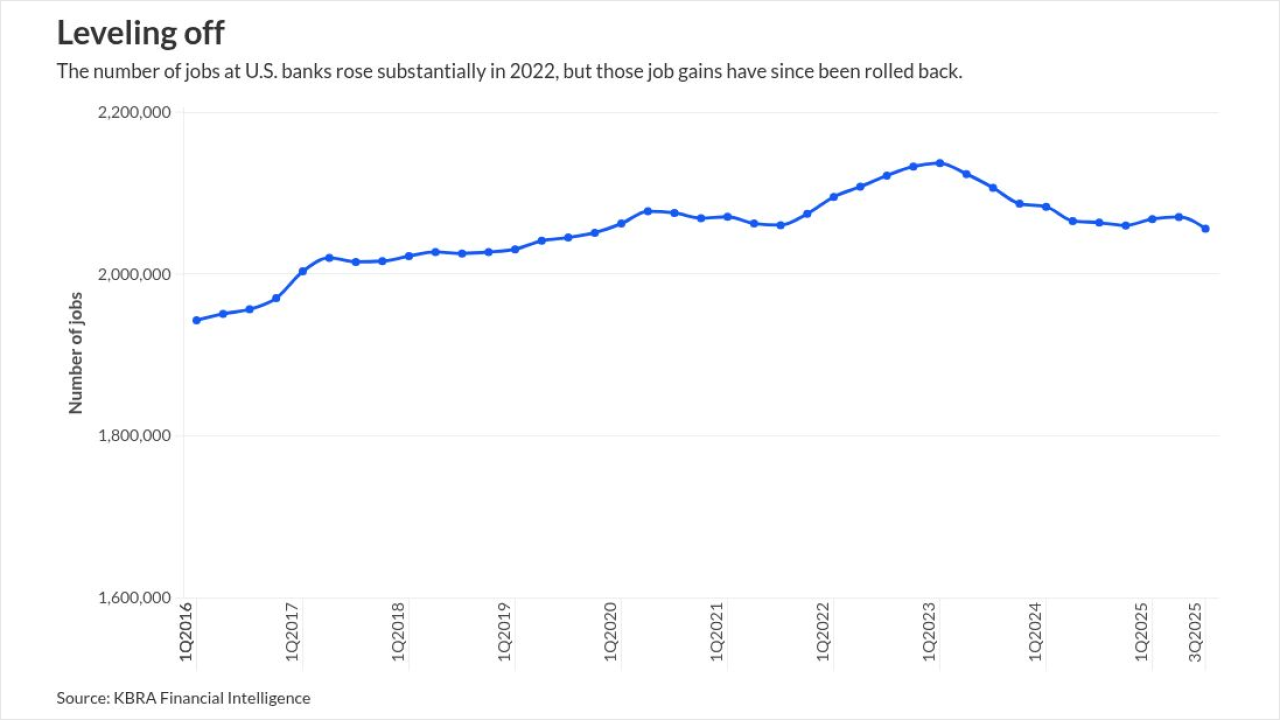
As California considers new artificial intelligence requirements for financial regulators, trade groups and legal experts are pushing regulators to recruit AI experts to produce guidance for financial institutions adopting newer forms of the technology.
The American Fintech Council released a statement on Monday in "strong support" of SB 69. The AFC stated that the bill would require the attorney general to "recruit or train personnel with AI expertise."
"AFC commends California lawmakers for recognizing the need to build regulatory capacity around AI and stands ready to work with policymakers to ensure consumer-first, innovation-friendly policies that preserve California's standing as a leader in responsible financial technology," the statement said.
Ian P. Moloney, head of policy and regulatory affairs at AFC, told American Banker that AI as a tool has been in the banking industry for many years, particularly through machine learning and automation. New regulations concerning more recent forms of AI, such as generative and agentic AI, may intersect with existing regulatory frameworks surrounding existing technology.
"AFC believes it's important for regulators to understand the existing legal and regulatory landscape and how it applies to AI technology before pursuing any additional or new requirements," Moloney told American Banker.
As the
Moloney told American Banker that there is a potential for "regulatory diffusion" should state-level AI regulation see success.
"There is a need to move the AI conversation to the federal level where, given the lack of geographic limitations associated with the use cases and the technology at large, the federal government has the best jurisdiction and the best opportunity to ensure that there's a harmonized AI approach to legislation and regulation," he said.
"Responsible fintech companies and innovative banks increasingly rely on AI to deliver safe, modern services, from expanding access to credit to servicing historically underserved communities," said Ashley Urisman, director of state government affairs at AFC. "This legislation ensures regulators fully understand these technologies so they can protect consumers and encourage fair competition among companies leveraging AI."
A different
Experts say that SB 69 may see success where other bills have failed. Devika Kornbacher, co-chair of the global tech group at multinational law firm Clifford Chance, told American Banker that SB 69 is employing a different tactic than the vetoed SB 1047 from last year.
"SB 1047 focused on regulating frontier (or the most powerful) AI models and, among other things, fed the debate on whether development of AI should be regulated at all," Kornbacher said. "SB 69 focuses on building out AI expertise among the regulators and in California more broadly. Of course, that expertise could lead to a regulator deciding that frontier AI models should have more scrutiny, but the bill doesn't take a particular stance on what should be regulated, just how the regulators should be prepared."
"As far as the outcome of this bill, AI literacy is a commonly understood and supported concept and SB 69 seems to be framed broadly enough to avoid a veto," she continued. "The current political environment is not one where I would place a bet on any outcome, [but] perhaps SB 69 will be seen as less controversial and be signed into law."





